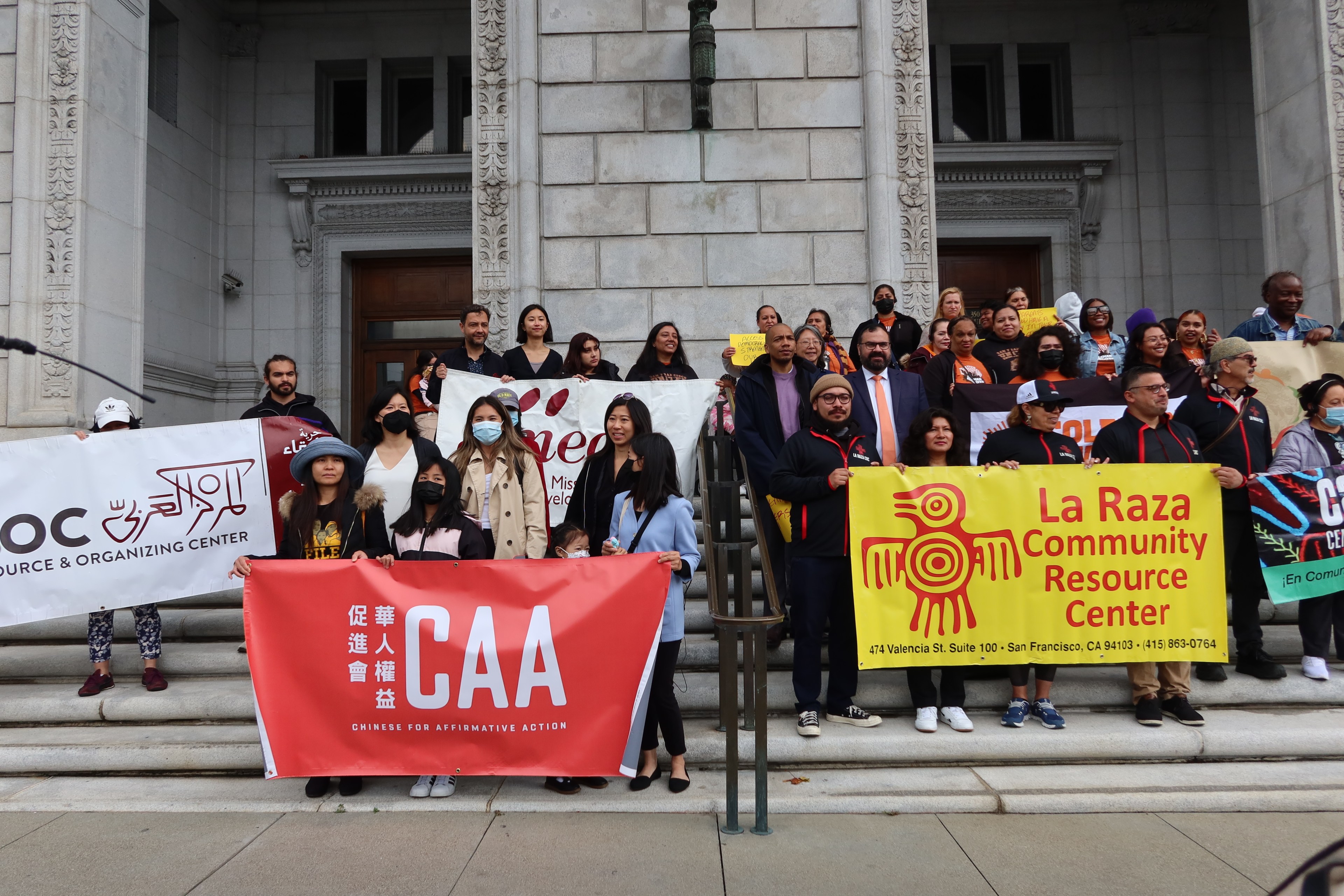The right of noncitizen parents to vote in local school board elections is once again at the forefront, seven years after San Francisco voters initially approved the idea in a ballot measure and one year after courts struck it down.
A July 2022 ruling undid the ballot measure in response to a lawsuit by James Lacy, an Orange County lawyer. In a hearing on Thursday, the city appealed the decision.
Prior to Thursday’s hearing, a group of immigrant advocates rallied outside the First District Court of Appeal on McAllister Street, arguing for the importance of parental involvement for students’ success.
Noncitizen parents were last able to cast votes in the November 2022 school board election while the city’s challenge hung in the balance. The ruling applies to parents, legal guardians or caregivers of children under 19 years old living in San Francisco.
“The lawsuit already stirred up fear among immigrant parents,” said Sin Yen Ling, spokesperson for Chinese for Affirmative Action. “Even if we win the lawsuit, in many ways it has had a certain negative impact. This is part of an effort of voter suppression since 2020.”
Not long after San Francisco voters granted limited voting rights to noncitizen residents, certain Trump administration policies struck fear in many immigrant communities, leading to a reluctance to register to vote. Noncitizens have been advised that Immigration and Customs Enforcement may obtain information from voter rolls and that applicants for U.S. citizenship may be asked if they’ve ever registered or voted in this country.
Lacy argued that noncitizen votes dilute the votes of citizens, and that school board elections are a state matter, not a local one. He also said that, for example, the eligibility of some San Francisco-based Chinese consulate staff members to vote cannot be what state Constitution founders originally intended.
Lacy also pointed out that, should the program remain in place, it would create an uneven landscape of voting rights for cities like San Francisco that have a special charter jurisdiction to create its own governing system. He added that he would continue litigation against noncitizen voting in California.
But a tentative ruling issued by Justice Mark B. Simons appears to agree with the city. He argued that the state constitution doesn’t prohibit noncitizen voting and that allowing noncitizen voting is part of a local government’s authority to determine how school board members are appointed or elected.
“The initial ruling of the Court of Appeals denigrates the integrity of elections for the San Francisco school board by devaluing citizenship as the key qualification for voting, and opens the door for further erosion of election integrity throughout the judicial district,” Lacy said in an email.
The City Attorney’s Office felt confident that the court would agree that it’s permissible under the state constitution and a program that the city has the authority to implement.
“Allowing noncitizen parents to vote in school board elections is not only permissible, but beneficial to our communities,” City Attorney David Chiu said in a statement. “Giving all parents a voice in the direction of our schools leads to better outcomes for our students. San Francisco is not unique or alone in allowing noncitizens to participate in local elections.”
The court is expected to make a decision within 90 days.
